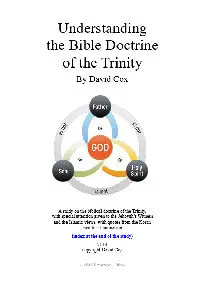Webmaster
Webmaster: [email protected]
We would like to give a shout-out to our friends at www.monergism.com
Donations: donate to help support this website.
Site Statistics
Total Files for Download: 2019
Total downloads: 3699855Categories
Upcoming Posts
- Collection of docx Wed 12/31/25 No posts pending, please check back later
Recommended Browser Extension
I recommend Bible Preview browser Extension.
Sidebar Advertisements

Buy me a Cup of Coffee! To make an old Christian work into a PDF, a module for theWord, MySword, or eSword takes time. These works are scans from old books, and as such, I have to go through the text some dozen times looking for places where the OCR is incorrect, blurred, or just skipped something.
Text Editing.Then there are the old Bible references like John iii. 16. Many young Christians and even preachers do not know the Latin system for books of the Bible. I convert Roman numerals in these books to Arabic (iii. to 3).
I have had to invest days and days in writing macros to read a long text, and make substitutions (for the above, search for "iii" and replace with "3:"). Unfortunately, with Psalms you have to start with 150 in Roman numerals (CL) and work your way backwards. But using macros, it is almost instantaneous the next time I need this. Work smarter, not harder. All this takes time and patience, (and being smart enough to do it in a macro language) (as well as a lot of coffee) and then making the text into theWord or eSword, mySword or a PDF.
Please donate something to me once every 6 months or even once a year, even if it is only $5, so that I can pay my bills for hosting, and also keep things moving along. It costs me about $10 per month to keep a website on the Internet. My websites also contains ads which have links to my sermons, tracts, books, that I have written. These keep my works before visitors, even if they are not visiting the specific website where I have them stored. It is my own "web" internally of my own sites with links to good Christian literature. May God bless for your prayers and donations.
Take a look at a few of our tracts:
salv76 suffering should seek his Savior - explains how we should react to problems and sufferings, we should seek the Savior.
pc15 How to fight against depression - we treat the problem of depression. Depression is not a physical disease, it is an emotional and spiritual disease that "bleeds over" and causes aggravation and physical consequences if not attended to at the spiritual-social-emotional level.
ch15 Congregating because we Love - a tract about why we attend church. Our relationship with our brethren in Christ is highly integrated with our salvation and our sanctification.
SSTeen1-01 Existence of God - Does God really exist? This is not a tract but a teen Sunday School Class that I wrote answering this important question.
fam48 Men are God's Agents - Men are God’s Agents to accomplish His Will, looks at man as God wants him to be. Manhood and the husband-wife relationship.
Donations: paypal.me/davidcoxmex/Site Archives
These pages are archives of the downloads added to this site, organized by year and month. (Download links included)
2024 12Dec.
More Good Posts

New Repository Website for theWord modules. My new website with about 500 modules for free download is now open. Click the image or hereto visit it. twmodules.com has about 2500 works (as of 4/10/2025) and I am uploading new works to both websites regularly. (from December 2024 through April, we have had a total of 900,000+ downloads of our works!)
More theWord repository websites: theword-dictionary-modules.com (100+ dictionaries) | theword-commentary-modules.com (440 commentaries) | theWord-modules.com (330 Bibles & related modules) | www.thewordtutorial.com How to use theWord.Build your free library! -
Recent Posts
Donate
Google Ads
Buy me a Cup of Coffee

National Envy of Righteousness
National Envy of Righteousness is an opinion piece contrasting godly government and principles (laws) versus ungodly governments and crime.
Topics: Cause and Effect | Craziness of Illegal Immigrants | Warning when you Stray from the Way of God | Lunacy of Changing the United States into a Third World Country
Excerpts from the Article:
Science is not propaganda. It is not what some particular person or group wants it to be. Global warming/cooling is not a problem because science has documented that "weather changes". Science studies causes and effects and draws logical conclusions from the causes and associates that to the effects....
God is the One who enforces the cause and effect, and when people stray from the position of blessedness, God will curse those people, individuals or groups (countries). people from a cursed country come illegally into the United States and then want the United States to be like their cursed system back home. Do they not understand what caused the bad conditions that they are running from?...
Read the Article: National Envy of RighteousnessFree Books

Buy me Steak Taco! You know, I work hard at my websites trying to provide you with good material that is sound doctrinally-speaking and of interest to God's people. It is hard work, but I don't mind doing it, and I feel called to the ministry, and God will bless me after all is said and done. But in the meantime, I do need to cover my expenses. I have a total of 34 websites (half English and half Spanish), and each one costs about $10 per month to keep up. That does not take into consideration my time and effort in writing content. Won't you consider at least a one time donation to this ministry of $10 or $20 dollars? It would be really great if you could gift me and my wife this money so that we could enjoy eating out at least once in a while. (I pay the expenses for these sites out of our living expenses.) God will richly bless you and repay you for your generosity. 1 Timothy 5:18 For the scripture saith, Thou shalt not muzzle the ox that treadeth out the corn. And, The labourer is worthy of his reward. If you received some value from my websites, consider at lest a small donation. A big donation would really be nice, too though.
Donate to David Cox Ministries.
Good Books and Tracts

Cox A Study on the Trinity is a short 32-page work on the Trinity with special attention applied towards Muslims and Jehovah's Witnesses. Chapters: 1. God is One Monotheism. | 2. Why God is one, but has to be three persons in that one God: Love needs three people. | 3. Other Consideration that God has to be three persons. | 4. God the Father is God | 5. Jesus is God | 6. The Holy Spirit is God. | 7. Unacceptable explanations of the Trinity. | 8 Conclusion. Alternate Download Site: Christian-kindle-library.com

Cox Expositor’s Bible Book of Ecclesiastes
PREFACE.
The Lectures on which this book is founded were delivered five-and-twenty years ago, and were published in A.D. 1867.[1] For more than twenty years the book has been out of print, a large first edition having been speedily sold out. No other edition was issued owing to the fact that my publisher soon passed into another profession. I have often been asked to reprint it, but have always felt that, before reprinting, I must rewrite it. Till of late, however, I could not command leisure for the task. But when, at the commencement of this year, the Editor of The Expositor’s Bible did me the honour to ask permission to reprint it, that he might include it in this excellent series, I had leisure at command, and cheerfully devoted it to the revision of my work. Among the more recent commentaries I have read with this purpose in view, those which[vi] I have found most helpful and suggestive were that of Delitzsch, that by Dr. Wright, that of Dean Plumptre, and the fine fragment contributed to The Expositor by Dr. Perowne, the Dean of Peterborough.
In the preface to the former edition I dwelt on my indebtedness to the commentary of Dr. Ginsburg, published in A.D. 1861. In my judgment it still remains by far the best, the most thorough and the most sound. It has but one serious defect; it is addressed to scholars, and so abounds in learning and erudition that it can never come into popular use. Indeed even now, although during the last twenty years there has been an immense advance in the study and exposition of Holy Writ, and many able and learned men have devoted themselves to the service of the general public, I know of no commentary on this Scripture which really meets the wants of the unlettered. I cannot but hope, therefore, that the Quest of the Chief Good may still serve a useful purpose, and that, in its revised form, it may be found helpful to those who most need help.
In rewriting the book I have retained as much as I could of its earlier form, lest the vivacity of a first exposition of the Scripture should be lost. And, indeed, the alterations I have had to make are but[vii] slight for the most part, though I have in many places altered, and, I hope, amended both the translation and the commentary: but there are one or two additions—they will be found on pages 20-26, and, again, in certain modifications of the exposition of Chapter XII., verses 9-12, on pages 279-305; dealing mainly with the structure of Ecclesiastes—which may, I trust, be found useful not to the general reader alone. Since the original edition appeared I have had to study the Book of Job, most of the Psalms, many of the Prophetical writings, and some of the Proverbs; and it was inevitable that in the course of these pleasant studies I should arrive at clearer and more definite conceptions on the structure of Hebrew poetry. These I now place at the service of my readers, and submit to the judgment of scholars and critics.
Another and much more important result of these subsequent studies has been that I can now speak with a more assured confidence of the theme of this Scripture, and of its handling by the Author. None of the scholars who have recently commented on the Book doubt that it is the quest of the chief good which it sets forth; and though some of them arrange and divide it differently, yet, on the whole and in the main, they are agreed that this quest is[viii] urged in Wisdom, in Pleasure, in Devotion to Public Affairs, in Wealth and in the Golden Mean; and that it ends and rests in the large noble conclusion, that only as men reverence God, and keep his commandments, and trust in his love, do they touch their true ideal, and find a good that will satisfy and sustain them under all changes, even to the last. The assent to this view of the Book was by no means general a quarter of a century ago; but it is so wide now, and is sanctioned by the authority of so many schools of learning, that I think no reader of the following pages need be disturbed by misgivings as to the accuracy of the main lines of thought here set forth.
Few Scriptures of the Old Testament are so familiar to the general reader as Ecclesiastes; and that mainly, I think, because it addresses itself to a problem which is “yours, mine, every man’s.” Many more quotations from it have entered into our current speech than have been taken from Job, for example, although Job is both a much larger and a much finer poem than this—”the finest poem,” as a great living poet has said, “whether of the modern or of the antique world.” It is a Book which can never lose its interest for men until the last conflict in the long strife of doubt has led in[ix] the final victory of faith; and seems, in especial, to adapt itself to the conditions and wants of the present age. It deals with the very questions which are in all our minds, and offers a solution of them, and, so far as I know, the only solution, in which those who have “eternity in their hearts” can rest. May all who study it, with such help as the following pages afford, find rest to their souls, and be drawn from the heat and strife of thought into the calm and hallowed sanctuary which it throws open to our erring feet.
The Holme, Hastings,
October 1890.
Works from this Category